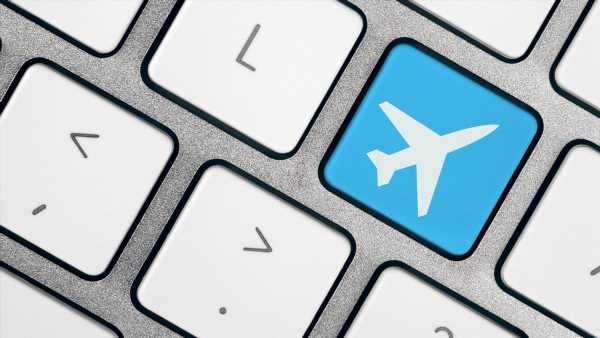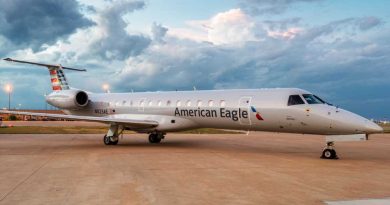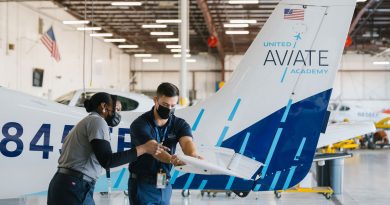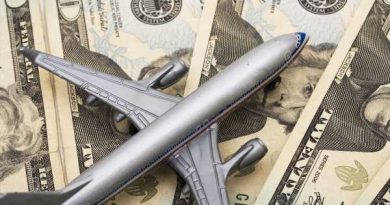Skiplagging isn't likely to stop anytime soon, even if airlines fight it
Skiplagging is once again the airline world’s topic du jour, thanks to American Airlines’ recent lawsuit against a platform that facilitates it, Skiplagged, and its widely reported crackdown on a 17-year-old who attempted to use the tactic as a cheaper way to reach his destination of Charlotte, N.C.
Also known as hidden-city ticketing, skiplagging is the practice of booking a ticket with the intention of getting off at the connecting airport rather than completing the flight to the destination.
Founded in 2013, Skiplagged says its purpose is to help travelers “find flights the airlines don’t want you to see.” The American lawsuit isn’t the first one the platform has faced at the hands of an airline. A judge dismissed a case United filed against the company in 2015 based on a technicality. Skiplagged also settled with Orbitz in 2015 after the company joined United’s suit.
In its lawsuit, American Airlines claimed that Skiplagged “employs unauthorized and deceptive ticketing practices” and said that in some instances the travelers using the platform are paying more than they would by booking directly with American, according to a copy of the filing the airline sent to PhocusWire, a sister publication of Travel Weekly.
The airline added: “Every ‘ticket’ issued by Skiplagged is at risk of being invalidated,” as American could cancel any ticket once they become aware it was issued by Skiplagged.
Skiplagged CEO Aktarer Zaman did not respond to PhocusWire’s request for comment but backed the value of his company in a statement to the Washington Post in August. “Our millions of users who keep coming back clearly speaks for how much value we bring to the travel industry, contrary to American Airlines’ claims,” he said.
American Airlines added in a statement that the practice is prohibited within American’s “conditions of carriage and agency agreements.”
“In some cases, there are entities acting as accredited agents of American, but fraudulently obtaining American’s content and misrepresenting its products and services to the detriment of the traveling public,” American said. “If a customer knowingly or unknowingly purchases a ticket and doesn’t fly all of the segments in their itinerary, it can lead to operational issues with checked bags and prevent other customers from booking a seat when they may have an urgent need to travel. Intentionally creating an empty seat that could have been used by another customer or team member is an all-around bad outcome.”
But the airline’s latest lawsuit — or any other that arises — isn’t likely to solve the root issue this tactic reflects, no matter whether American Airlines is named the victor.
Robert Cole, Phocuswright senior research analyst for lodging and leisure travel, said that even if American Airlines or another airline wins a lawsuit against a purveyor of skiplagging, the practice isn’t likely to disappear immediately.
“Individual travelers can do this themselves,” Cole said, noting it might take longer than if a traveler used a site like Skiplagged, but that it’s still possible.
Brett Snyder of airline industry blog Cranky Flier and air travel assistance firm Cranky Concierge agreed.
“I don’t think it can ever be stopped completely,” Snyder said.
Skiplagging has been around a long time
Eric Leopold, founder and managing director of Threedot, an advisory company for the travel industry, calls skiplagging a “controversial way” for travelers to save on air travel that has been happening for decades.
Network carriers, said Leopold, are most susceptible to this practice thanks to competition on major routes.
And why does it happen that flights with stopovers to further destinations cost less than direct flights to closer geographic destinations? “Market conditions,” Cole said.
Snyder added that “most airlines set their fares based on the origin and destination and not the sum of specific flight segments.”
Airfare, Snyder said, “can vary widely depending upon where people start and end their trips. It’s all based on demand, competitive position and more.”
A loophole of airlines’ own creation
The airlines’ fight, to a degree, isn’t just against Skiplagged or companies like it but against the practice of hidden-city ticketing that is in fact a loophole of their own creation.
“The challenge is they created this themselves through their pricing strategy,” Cole said. “It’s a self-inflicted challenge.”
Airlines have the power to stop the problem, but because of how they optimize fares to their benefit, it’s not likely that they will, Cole said.
“Is that really worth upending all your pricing strategies across your entire network just to try to pin down this one little niche loophole that your pricing strategies have created?” Coles said.
And while Snyder doesn’t think that the problem will be squashed quickly, he believes that the airlines may eventually have success with keeping their customers in line.
“If airlines ramp up their enforcement against the practice, people will eventually stop doing it for fear of being penalized,” Snyder said.
But, Cole asked, will they really “play whack-a-mole” attempting to stop their clients from doing this? And what about adverse effects of cracking down?
“[Do] they really want to go out and start broadly promoting that this is a huge problem?” he said. “I mean they start to look draconian. And even through that process, they’re introducing [skipladding] to other people.”
Cole said that if airlines get loud about this, passengers may just shift their strategy to another carrier that is more lax.
“They have a lot of things that they can do, but would it be easier to try to close the loophole from a pricing perspective?” Cole said. “And yes, they could close the loophole from a pricing perspective but that may be less profitable to them in the grand scheme of things. It might have a detrimental effect on their network pricing optimization.”
What does skiplagging cost the airlines?
It’s difficult to assess how skiplagging actually impacts airlines in terms of revenue.
“I’m not aware of any statistics about the impact on airlines,” Leopold said. “Low-cost carriers are not impacted because they only sell point-to-point flights.”
Cole said it’s really a hypothetical loss for the airlines because airlines are still being paid for the fare as they listed even if a customer ends their trip at the connecting airport. “The airline sets the fare,” he said. “They paid what the airline asked for, they just didn’t use the whole product.”
Snyder disagreed.
“This isn’t a perceived loss for an airline,” he said. “It’s a real loss in that the person is not paying the fare that’s being charged for the route they want to fly.”
Whether booked with the assistance of a platform such as Skiplagged or booked direct on their own, experts don’t recommend that travelers employ this strategy.
“If it was my daughters…. I would not advise them to do that,” Leopold said. “It’s a bit like, you know, shoplifting. You can get away with it. They’re not going to sue everybody who was stealing from supermarkets. (But) I would not advise my daughters to do it.”
There are a number of ways that airlines can address skiplagging that will impact customers, according to Leopold.
“One way to do it is with written conditions,” he said. ‘If you stop during an itinerary, we are going to charge you for the itinerary that you flew.'”
In the end, the airlines determine how they want to price tickets, and they make the rules that customers aren’t allowed to do certain things like hidden-city ticketing/skiplagging,” Snyder said. “That doesn’t mean customers won’t keep trying to go around the rules, but if they get caught, they don’t really have a leg to stand on.”
In the recent case involving the teenager intending to disembark in Charlotte, the airline uncovered his plan before he boarded his flight in Florida and then canceled his ticket.
Source: PhocusWire
Source: Read Full Article



